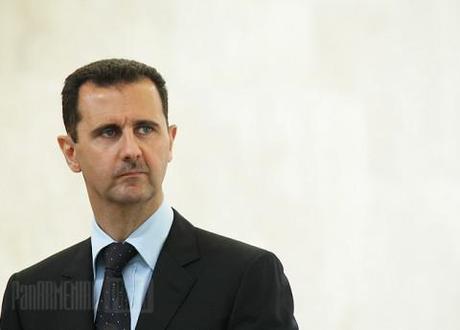
Syrian President Bashar al-Assad. Photo credit: PanArmenian Photo
Syria has been suspended from the Arab League following the regime’s violent crackdown on anti-government protesters. The move comes after months of bloodshed in Syria, with President Bashar al-Assad ordering in troops to halt protests.
Majority vote. The BBC reported that, of the eighteen countries of the Arab League, only Syria, Lebanon and Yemen voted against the membership freeze, with Iraq abstaining. BBC correspondent Jon Leyne said that the suspension was “a huge blow to Syria’s pride, and could also be a real practical blow to its leaders”.
Importance of Qatar. The LA Times explored the role played by Qatar, currently chairing the Arab League, in recent events: “Qatar is capitalizing on, and Assad is in danger of succumbing to, the most transformative moment in the region since the doomed specter of pan-Arabism of the 1960s.” According to the paper, Qatar is even more influential than Saudi Arabia, despite being a relatively tiny country: “The emirate is adroit at playing all sides: It is home to a U.S. military base, yet it keeps close to the passions of the Arab street through Al Jazeera and maintains cordial relations with Iran.”
Growing pressure on Syrian regime. What’s more, Justyna Pawlak and David Brunnstrom wrote for Reuters that the EU has agreed to increase sanctions on Syria: “British Foreign Secretary William Hague said there was a good case for further extending EU sanctions, which from Tuesday will affect 74 individuals and 19 firms and entities.”
Assad fury. The Assad regime has hit back, with the Syrian foreign minister branding the suspension “illegal” and suggesting the US has infiltrated the Arab League, according to Al Jazeera. What’s more, Al Jazeera reported that government supporters have attacked Saudi, Qatari and Turkish embassies and consulates in Syria. Unsurprisingly, the Syrian government news agency is focusing on the reaction of ally Russia: among a flurry of stories about ordinary Syrians who supposedly oppose the suspension, SANA reported that Russian Foreign Minister Sergei Lavrov said that the Arab League had “lost a very important opportunity to move the situation towards a more transparent course”.
The right move. Writing on a Washington Post blog, David Ignatius approved the decision, saying the suspension showed that the Arab League was becoming “a force that takes action to protect oppressed Arab citizens and restrain autocratic rulers”. Ignatius said the move was “poetic justice”, because Syria had been trying to turn the League into “a dictators’ protection society” for years.
Protests continue. The Financial Times reported that activists are hanging on in Damascus despite the deaths of 3,500 protesters at the hands of the Assad regime. According to the report, the ferocity of the crackdown means protesters have had to find new methods beyond conventional street protest: “In recent weeks hundreds of red balloons carrying anti-regime slogans and flyers have drifted across the city.” Other new protests included leaving ping pong balls covered in slogans around the city and turning the city’s water fountains red.

